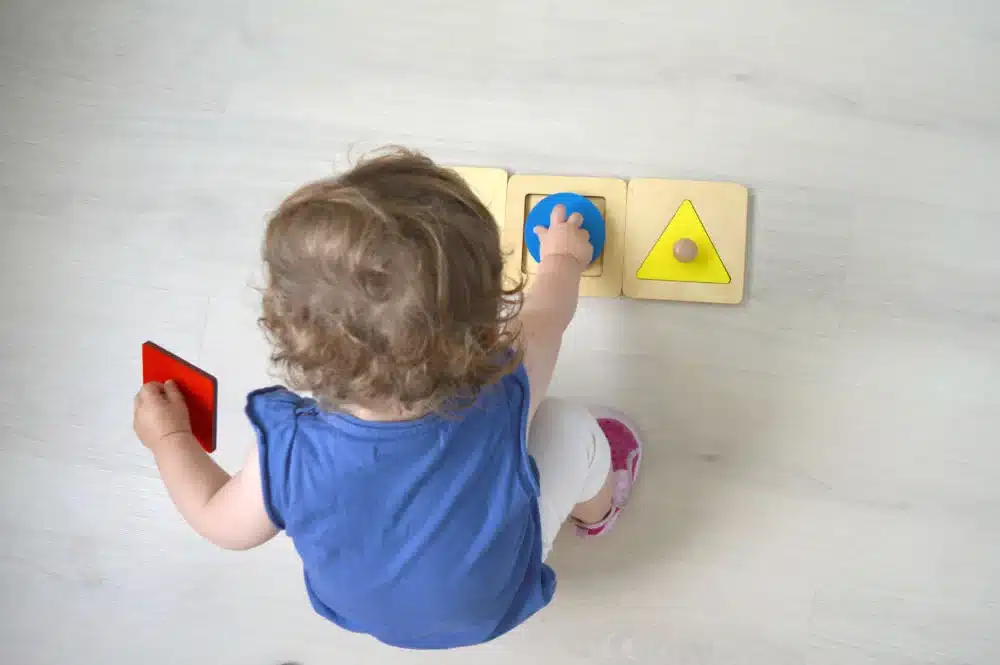Cognitive development in young children is essential for lifelong learning and problem-solving. This blog explores key milestones, what to expect at different stages, and how parents, caregivers, and educators can support healthy development.
What Are Cognitive Milestones?
Cognitive milestones refer to the developmental stages children reach as they learn and acquire basic thinking skills. These include problem-solving, memory, attention, language development, and decision-making. While the timeline may vary from child to child, understanding these milestones can help identify normal growth patterns or areas where additional support might be beneficial.
Why Cognitive Milestones Matter
Monitoring these milestones does more than just reassure parents that their child is on track. It helps you:
- Identify strengths and challenges early in your child’s development.
- Foster learning opportunities at the right time.
- Create a stimulating environment to support healthy mental growth.
It’s important to remember that all children develop at their own pace. Milestones serve as a general guideline rather than a strict timeline.
Key Cognitive Milestones by Age
Birth to 6 Months
During the first six months, cognitive development is all about sensory exploration. Babies learn through seeing, hearing, touching, and observing.
- Recognizing Faces: Newborns quickly learn to recognize familiar faces like parents and caregivers.
- Tracking Objects and Sounds: Around six weeks, babies begin tracking moving objects with their eyes and turning their heads toward sounds.
- Engaging in Cause and Effect: For example, they might shake a rattle and smile when it makes a sound. These small actions lay the groundwork for understanding cause and effect.
- Exploring with Senses: Babies put objects in their mouths as part of sensory development, so don’t worry if you see this behavior frequently during these months.
6 to 12 Months
From six to twelve months, babies start to grasp the concept of permanence and build memory. Some key cognitive milestones during this stage include:
- Object Permanence: By about 8 months, babies understand that objects still exist even when they’re out of sight. Playing peek-a-boo is a fun way to illustrate this milestone!
- Imitation of Actions: They start to mimic simple actions, such as clapping or waving goodbye. This demonstrates growing memory and observational skills.
- Problem-Solving: Babies at this stage often experiment, like dropping a toy repeatedly to see what happens.
1 to 2 Years
Toddlers are full of energy and curiosity, which fuels their rapidly developing brains. They’re learning new words, interacting with their surroundings, and absorbing cues from people around them.
- Language Explosion: By 18 months, many toddlers know between 20 and 50 words, and they use these to communicate needs and emotions.
- Following Simple Instructions: They can follow basic one-step directions like “Come here” or “Pick up the toy.”
- Curiosity about Cause and Effect: Ever see a 2-year-old push buttons endlessly? They’re figuring out what happens when they engage with their environment.
2 to 3 Years
As they approach their third birthday, children’s cognitive abilities reach new levels. They’re more confident in exploring their world and expressing themselves.
- Pretend Play: This stage often features pretend games involving imaginary scenarios. It’s a sign of improved creativity and problem-solving skills.
- Building Simple Puzzles: Around this age, many children can manipulate puzzle pieces to complete a basic jigsaw.
- Understanding Time Concepts: While still very basic, 2- to 3-year-olds start grasping sequences like “first” and “then.”
3 to 5 Years
Preschoolers begin to develop more advanced cognitive skills, including critical thinking, reasoning, and decision-making.
- Comparing and Sorting Objects: By age 4, children can categorize objects by color, shape, or size.
- Ask Endless Questions: “Why?” becomes a common word in their vocabulary as they seek to understand their world.
- Early Math and Reading Abilities: Recognizing numbers, counting, and learning the alphabet often happen during this stage.
6 Years and Beyond
School-aged children show growing independence and an ability to handle more complex reasoning tasks.
- Problem Solving with Logic: They show greater ability to solve puzzles, understand cause-and-effect relationships, and reason through problems.
- Collaborative Play: Teamwork and sharing become prominent as children work toward common group goals, such as building with blocks or playing sports.
- Memory and Attention: Their attention span and memory improve, helping them focus more effectively on tasks like reading or learning new skills.
How to Support Cognitive Development
Parents and caregivers play an essential role in helping children reach their cognitive milestones. Here are some proven strategies to encourage healthy development:
- Create a Stimulating Environment: Provide age-appropriate toys and materials that encourage exploration and discovery, similar to the engaging environments found in day care centers like those in Casa Adobes Oro Valley.
- Read Regularly: Whether it’s books with bright, bold pictures for younger kids or storybooks with simple words for preschoolers, reading enhances cognitive growth.
- Engage in Conversation: Talk with your child, even if they don’t fully understand everything. This helps with language development and social skills.
- Encourage Problem-Solving: Offer puzzles, sorting games, or even questions like “What should we do first when cleaning up toys?”
- Play Together: Pretend play and interactive activities foster creativity and critical thinking while strengthening your bond.
When Should You Be Concerned?
While children develop at their own pace, significant delays in milestone achievement might signal the need for further evaluation. Talk to your pediatrician if you notice:
- Lack of engagement with their environment.
- Trouble interacting or responding to others.
- Difficulty meeting major milestones, like speaking their first words by 18 months.
Early intervention is key to addressing developmental delays.
Conclusion
Cognitive milestones in children develop uniquely, with each child growing at their own pace. The key is to nurture their curiosity and provide a safe, supportive environment for exploration and learning. Have questions about your child’s development? Share your thoughts or reach out for insights.







